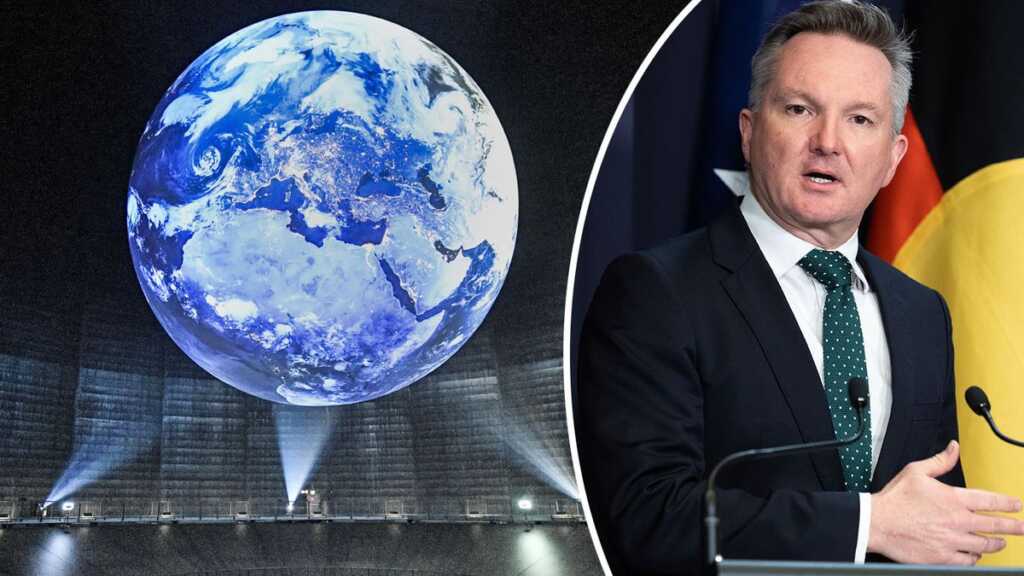To save face at the United Nations, the Albanese Government is locking Australia into a future of energy poverty and jeopardizing our energy security.
More than 70,000 international delegates are now descending on Dubai to attend the world’s largest annual climate change meeting, the United Nations’ 28th Conference of the Parties (COP28).
As the world grapples with the challenge of decarbonising while maintaining energy security, and keeping the lights on and prices down, there is much Australia can learn.
These COP meetings are important, and the United Arab Emirates is a well credentialed host.
It is home to three of the world’s largest solar plants, the Middle East’s first industrial scale Carbon Capture, Utilization and Storage facility and the region’s first fleet of zero-emissions nuclear reactors.
As a new adopter of nuclear energy, the UAE is decarbonizing at speed; it has connected an additional large 1.4GW reactor to its grid each of the last four years.
The international prestige that comes with hosting COP hasn’t been lost on Prime Minister Albanese who’s been on a charm offensive wooing Pacific Island nations to join a bid to co-host COP31 in 2026.
Putting at risk Albanese’s dream of hosting the world at a future COP is his government’s woeful performance on climate change and energy.
They even legislated a 43% emissions reduction target by 2030 to prove it.
But, 18 months on, Australia’s emissions are going in the wrong direction. According to last week’s Climate Change Statement, Australia’s emissions are tracking up not down, having increased by four million tonnes over 2022-23.
This revelation is devastating for the Albanese Government which won office on a series of promises and targets relating to climate change and energy.
Labor promised a $275 reduction in household power bills, but prices have increased by up to $1,000 and Australians now pay some of the highest prices in the world.
Labor’s EV target of 89% of new vehicle sales by 2030 is forecast to come in at only 27%.
Its reformed Safeguard Mechanism – in substance, a carbon tax – is forcing asset write downs, a loss of competitiveness and the offshoring of emissions which is why Labor now wants to introduce a tariff scheme to mop it up.
But Labor’s biggest humiliation is failing to unlock private capital to deliver its 82% renewables target by 2030.
Results for the September quarter indicate that investment in solar, wind and batteries are below one-tenth of the pace that’s required for Labor to meet its target, according to the Clean Energy Council.
This explains Labor’s expansion of its Capacity Investment Scheme which will see taxpayers underwrite 32GW of new wind, solar and battery projects, at a cost Labor refuses to disclose.
Meanwhile, the government is killing off gas supply and doing nothing to stop 80 percent of baseload power stations exiting the grid by 2035, leaving the electricity grid in crisis with brownouts and blackouts expected as soon as this summer.
The consequence of these failures will be energy poverty, a loss of energy security, and a botched attempt at decarbonizing our economy.
Labor’s policies are also being felt abroad as trading partners now consider Australia a sovereign risk to their own energy security, as trust built over generations in our nation as a reliable supplier of resources is trashed.
So, amidst all this, what’s the priority of the Albanese Government?
But, given emissions are rising, targets are being missed and promises broken, he can hardly pitch to host a future COP on the grounds of performance.
This leaves only one option: he has to make big promises about the future.
But what?
The only hint to date is that an Australian COP would “elevate the case of the Pacific for more climate action”, according to Climate Change and Energy Minister Chris Bowen.
Soothing words, but how will this work in practice?
Although Pacific leaders have endorsed a proposal to co-host COP, they have simultaneously called for Australia to stop extracting and exporting coal and gas.
Australia has caused enough problems for its trading partners and so surely this won’t be agreed to.
Unless a line is drawn under such issues, disagreements on the future of our resource sector will be on public display all the way to 2026.
Australia should attend COP28 in Dubai and actively participate in it.
But hosting a future COP is another vanity project for Prime Minister Albanese who should first get his own house in order by addressing Labor’s cost-of-living crisis and its failed climate and energy policies.
Ted O’Brien
Federal Member for Fairfax
Shadow Minister for Climate Change and Energy
